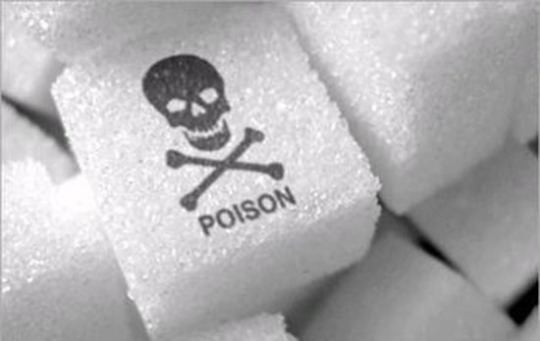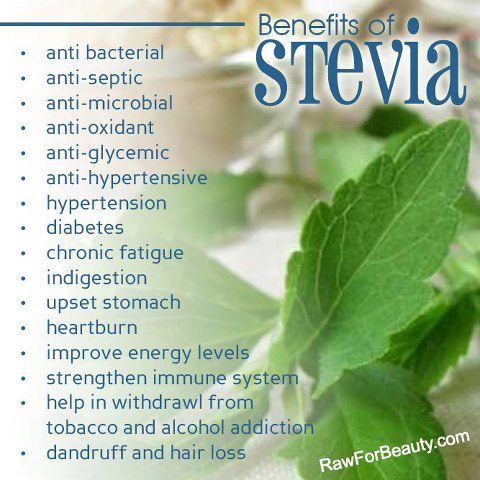I cringe every time I see someone reaching out to grab a few packets of synthetic sugary death. My main point for switching to a natural sweetener for coffee or tea is that it’s just SO EASY. It takes nothing, but one decision, and some enlightenment. So, allow me to enlighten you if you think NutraSweet, SweetnLow, Sucralose, Aspartame and the rest of it is OK to consume, just because it has 0 calories.
And you know what really grinds my gears? Sites like WebMD PROMOTE and ENDORSE this poison. Absolutely ridiculous. There are so many big companies and businesses that support the use of these toxic substances. Why? Money. Sick people equals more money. Anyway, here is a bit of info I gathered listing why artificial sweeteners are horrible for your body.
Aspartame is a non-calorie artificial sweetener comprised of methanol, phenylalanine and aspartic acid. It is used in diet sodas and thousands of other products worldwide. Since it appeared on the US market in the 1980s, aspartame and the possible health risks from the substance have been a topic of much debate. Research has linked the sweetener to diabetes, fibromyalgia and certain forms of cancer. Here are some of the dangers of excessive aspartame consumption.
Cancer
Studies have found a dangerous connection between aspartame consumption and the development of brain tumors. When aspartame breaks down it produces a substance called DKP. As your stomach digests DKP, it produces a chemical that induces the growth of brain tumors.
Diabetes
Aspartame consumption is extremely harmful to people with diabetes. It makes it more difficult to control sugar levels and aggravate diabetes-related conditions such as retinopathy, cataracts, neuropathy and gastroparesis. The sweetener also has been known to cause convulsions often mistaken for insulin reactions.
Psychological Disorders
Emotional and mood disorders have been linked to aspartame. Studies suggest that people with certain emotional problems are more sensitive to aspartame. High levels of aspartame cause changes in the serotonin levels which can lead to behavioral problems, depression and other emotional disorders. In some cases, the side effects were so dangerous that doctors were forced to put an end to the studies.
Hinders Weight Loss
Aspartame can be found in diet sodas and most other diet products. However, research indicates that the sweetener increases your hunger and can actually impede your weight loss. Phenylalanine and aspartic acid can cause spikes in insulin levels and force your body to remove the glucose from your blood stream and store it as fat. Aspartame also inhibits the production of serotonin and prevents your brain from signalling to your body that you are full. This can lead to food cravings and make it more difficult for you to lose weight.
Birth Defects
Aspartame is an excitotoxin or a substance that has the potential to damage or kill cells in the nervous system. The blood-brain barrier is a structure that stops harmful substances from penetrating the brain. The barrier doesn’t completely form until a child is one year old, therefore, before a child is born, its nervous system is vulnerable to any dangerous excitotoxins that the mother may consume. Too much exposure to phenylalanine or aspartic acid may cause irreversible brain damage and other serious birth defects.
Vision Problems
Methanol, one of Aspartame’s components, can damage the retinas and the optic nerves. Aspartame consumption has been connected to eye pain, blurred vision and, in some cases, blindness.
Brain Damage and Seizures
Aspartame can change the chemistry of the brain. Formaldehyde, a product of methanol, gathers in certain areas of the brain causing degenerative diseases such as Parkinson’s, Alzheimer’s and ALS. Aspartame consumption can also trigger seizures in both epileptics and other individuals without a history of epilepsy.
Aspartame may contain fewer calories than sugar, however, the toxic sweetener has the potential to cause serious damage to the nervous system and in the worst case scenarios can be fatal.
SMART SUGAR CHOICES
I would suggest the following: Coconut/palm Sugar, Stevia, Agave Nectar, Organic/Raw Cane Sugar, Date Sugar, Maple Syrup, Raw Honey
Here is some info on Stevia, and why I would invite you to pick some up, carrry it in your purse/bag or wallet, and use daily, IF you are a big coffee or tea drinker.
Stevia leaf, a natural sweetener derived from the sweet leaf plant, is 300x as sweet as sugar, so it just takes a small amount of it to produce the same sweet taste as pure sweetener. Stevia leaf has been utilized as a sweetener as a part of numerous societies for quite some time, yet is just being acknowledged as a sugar substitute in the United States. In the mid 1990s, it was first introduced in the US as a natural supplement. Following a considerable period of controversy, it was sanctioned by the FDA.
There are, as of now, some sugar substitutes available, so the fact that stevia leaf is somehow special might be up for debate. For one thing, its all-natural, thus motivating a large number of health gurus to recommend it over some of the other artificially made substitutes. It additionally seems to offer some health benefits; however, the exploration is frequently intermingled and conflicting.
Here’s a list of some of the alleged benefits stevia leaf has to offer.
For those paying close attention their starch or caloric intake as part of their diet, they consider stevia leaf as a carb without all the calories. This makes it conceivable for health food nuts to fulfill sweet cravings without wrecking their consuming arrangements. Some studies have indicated that stevia leaf has a profound effect on reducing blood pressure. Individuals who suffer from high blood pressure should mix stevia leaf in with their tea. Drinking this arrangement on a regular basis will make it possible for them to overcome their problem the natural way.
For individuals with elevated glucose levels, stevia leaf has the ability to bring down sugar levels. This makes it a conceivably worthy substitute for anybody with glucose or insulin situations. Notwithstanding, diabetics may as well press on to screen their glucose levels and insulin levels in the wake of utilizing Stevia to determine everything stays under tight restraints.
Stevia leaf, when utilized orally, has demonstrated antibacterial properties. This makes it a perfect part in toothpaste and mouthwashes because it has the potential to battle cavities and counteract the effects of gingivitis. When applied topically, it has shown to demonstrate many of the same benefits. You might even find in included among the various ingredients in balms that are said to treat skin inflammation.
For numerous individuals, the overpowering benefit of stevia leaf is that it offers a clearly solid substitute to genuine sweetener, corn syrup, aspartame, or saccharine. For the aforementioned individuals, the way that it has been utilized as a part of different societies for a considerable length of time with no evident unwell impacts is sufficient to prescribe its utilization. Obviously, depending on if you have inquiries regarding the health profits or reactions of this sugar substitute, you may as well check with your doctor. They will be able to provide you with quality advice on which sugar substitute is going to work best for you and your particular diet. You should pay attention to their recommendations. The information that they provide to you could mean the difference between weight loss success and less than impressive results.
http://superfooddiet.com/health-benefits-of-stevia-leaf/
All the best.

